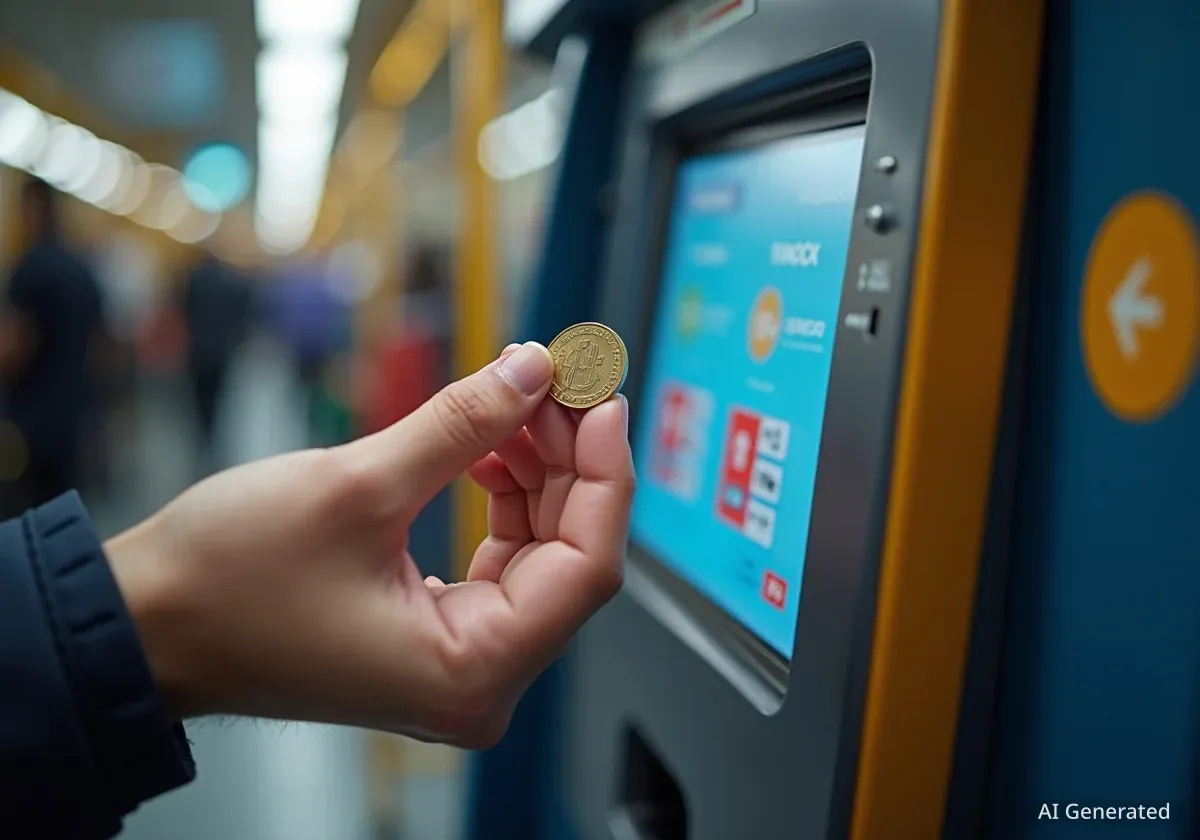The Bern Aktiv association has strongly criticized BLS and the Bern cantonal government regarding significant restrictions on cash payments for public transport tickets. The association states these changes go against a clear decision made by the Grand Council in summer 2024 to maintain cash as a valid payment method. BLS, however, defends its new policy, citing support from the Canton of Bern and highlighting alternative payment solutions.
Key Takeaways
- Bern Aktiv criticizes BLS for limiting cash payments.
- The association claims this contradicts a Grand Council resolution.
- BLS states the Canton of Bern supports its cashless approach.
- Concerns exist for older adults, low-income individuals, and those with limited digital skills.
- BLS is introducing a prepaid card and offering training.
Cash Restrictions Spark Public Debate
Bern Aktiv, a local association, issued a media release expressing its strong disapproval of BLS's decision. BLS announced that cash payments will be severely restricted. Specifically, ticket machines across the Canton of Bern will only accept cashless payments moving forward. This move has generated considerable public debate. The BLS Group operates a significant portion of public transport in the region, including trains, buses, and boats.
The association argues that thousands of people could face exclusion from public transport. These include older individuals, those with lower incomes, people with disabilities, and individuals with limited digital literacy. Children and young people are also among the groups identified as potentially affected by the changes. The shift away from cash payments represents a notable change in service provision.
Fact Check
- BLS Operations: BLS operates regional trains, S-Bahn services, buses, and boats in the Canton of Bern and surrounding areas.
- Payment Trends: Many public transport operators globally are moving towards cashless systems to improve efficiency and security.
- Grand Council Decision: In summer 2024, the Grand Council of Bern explicitly called for cash to remain a payment option in public transport.
Contradiction to Grand Council Resolution
Bern Aktiv highlights a perceived contradiction between BLS's actions and a decision by the Grand Council. The association points out that other cantons, such as Lucerne and Neuchâtel, have actively worked to preserve cash payment options at ticket machines. Conversely, Bern Aktiv accuses the Bernese cantonal government of inaction on this issue. The association suggests the government is disregarding a clear parliamentary mandate.
"While the governments of the cantons of Lucerne and Neuchâtel have apparently taken responsibility and clearly advocated for the preservation of cash machines, the Bernese cantonal government remains inactive. It even disregards a clear resolution of the Grand Council," stated Bern Aktiv in its media release.
The Grand Council's summer 2024 session specifically requested that cash remain a payment method for public transport. Bern Aktiv argues that BLS, as a majority public-owned company, is behaving unrealistically. They believe BLS lacks a sense of social responsibility in this decision. Publicly owned companies often face increased scrutiny regarding their social impact.
Context: Public Transport and Digitalization
Public transport providers across Switzerland and Europe are increasingly adopting digital payment solutions. This trend aims to streamline operations, reduce handling costs, and enhance security. However, it also raises questions about accessibility for all population segments. Ensuring inclusive access to essential services like public transport is a key challenge for authorities.
Impact on Rural Areas and Vulnerable Groups
The elimination of cash functions could exclude thousands of people from accessing public transport. This is a primary concern for Bern Aktiv. The association specifically names older adults, economically disadvantaged individuals, and those with digital literacy challenges. People with disabilities may also find the new system difficult to navigate.
A central point of criticism is the introduction of a new prepaid card. This card is intended as an alternative payment method. However, Bern Aktiv President Thomas Fuchs notes a significant limitation. The card is only available at 22 BLS sales points across the entire Canton of Bern. This limited availability creates a barrier for many potential users.
"Those who live in rural areas or have limited mobility are literally left behind," said Thomas Fuchs. He emphasized that cash remains an essential part of daily life for many people. According to Fuchs, cash represents freedom, data protection, and self-determination. These values are important for a segment of the population that relies on traditional payment methods.
BLS Defends Its New Payment Policy
BLS states it does not understand the criticism. Colin Cuvit, a BLS media spokesperson, confirmed that the Canton of Bern supports their approach. The canton is BLS's largest client. This support suggests a coordinated effort between the public transport provider and the cantonal government.
BLS also clarified that the new prepaid card is available at sales points of all public transport companies. This extends its reach beyond just BLS-specific locations. Furthermore, BLS is exploring a trial sale of these cards in selected Post Office branches. This initiative aims to increase accessibility for customers. "From our perspective, widespread access to acquiring this card will therefore be ensured," stated BLS.
The prepaid card is designed to be a practical solution for specific user groups. These include children, individuals without smartphones, and travelers who prefer to remain anonymous. This indicates BLS's intention to cater to diverse needs, even while shifting towards cashless options. Anonymity in transactions is a specific concern for some users.
Support Measures and Future Outlook
In addition to the prepaid card, BLS is offering training sessions. These sessions will teach customers how to use ticket machines and smartphones for payments. This initiative is a direct result of discussions with various associations, including Pro Senectute, an organization dedicated to the well-being of older people. Such training programs are vital for easing the transition to new technologies.
The ongoing dialogue between BLS and community organizations highlights the complexity of modernizing public services. Balancing efficiency with inclusivity is a continuous challenge. The outcome of these changes will likely be closely watched by commuters and advocacy groups alike. The debate around cash payments in public transport reflects broader societal discussions about digitalization and access for all citizens.




